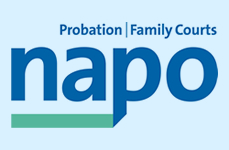The PQF is the current training arrangement whereby Probation Officers and Probation Service Officers are trained and qualified.
The Secretary of State has recently (1.2.15) published his guidelines which describe the qualifications, experience and training required of an officer of a provider of probation services in relation to work involving the supervision of offenders (A Competent Workforce To Transform Rehabilitation ) under Section 10(2) of the Offender Management Act 2007. For NPS staff the PQF, and any successor, will continue to apply. The NPS must continue to use the PQF to train and qualify staff. No such restrictions are applied to CRCs.
What is PQF currently?
It's a 3 stage process
1. Gateway to Practice - all new staff
2. VQ3 qualification - for PSOs. Which has been required of new starters for some time now - though this is no longer required for all new PSO employees.
3. VQ5 qualification/Community Justice Honours degree or graduate diploma - Probation Officers qualification.
Contract expiry:
The current contracts related to this Framework - with HE providers, expire at the end of March 2016 and there is no current prospect of contract extension. In order for this training to continue, the PQF has to be reviewed and revised and new contracts let before next April. Ideally a new training cohort would start in or around April 2016 if a further training gap is to be avoided. This is a big ask.
What does the future look like?
No decisions have yet been made, except to say it won't be the same.
Key principles: -
• Relevant & accessible
• Cost effective & time efficient
• National curriculum
• Congruent with NOS (National Occupational Standards).
• Honours degree level qualification at the top
• Regular review & update to ensure fitness for purpose
• Flexibility/accessibility
• Integrated - academic and practice learning
• Rigorous/transparent approach to accreditation of prior learning
• Must contribute to recruitment & retention of staff with clear career pathways
• Must support continuous development of effective practice
• Administered & quality assured by NOMS with input from stakeholders
• Portability
The PO qualification in all likelihood will remain at VQ5/ degree level but the pathways for achieving this are likely to be greater in number. Restricting access to graduates is not seen as sustainable.
Feeder routes to the PO Professional Qualification might include any of the following:
- Internal training and assessment
-Apprenticeships
-Vocational Qualifications at level 3 and or 4
-Relevant Degrees
-Top up modules for those with other degrees
-Prior relevant experience
-Sandwich degrees with flexible delivery
- Funding contributions from different quarters, including learners themselves
-.Probationary year
How is the review being conducted?
There is a PQR Project Board which makes the decisions and a PQR Project Group which does the work. There is also a reference group being set up to offer views on suggested changes.
This work has only started in earnest since the beginning of the year. Some CRCs are represented on the Board and the Project Group and CRCs have the option to 'buy-in' to this qualification but its (re) development is primarily aimed at providing trained/qualified staff for the NPS. Meetings of the Board and the Project Group are now taking place monthly. Napo is represented on the Project Group.
Current PQF training
This is overseen by the Probation Qualifications Assurance Board (PQAB). Napo also has a place on this Board.
An acute shortage of Probation Officers is being addressed by three cohorts of new learners starting last October, this February and again in May. This will total around 1000 people and they are training on the graduate entry route which takes 15 months and is restricted to those with a 'relevant' degree - of which there are currently only four.
Previously there had also been a longer, three year, qualification route for non-graduates through which a degree in community justice was obtained. There are some residual learners on this route but it is now a 'closed' route partly due to the imminent contract end but also due to changes effected by the TR Programme. This was an attractive career route for many Probation Service Officers and the fact that it has been closed off is a source of considerable dismay for many.
Training requirements will be dictated by workforce planning/operational modelling in both the NPS and CRCs.
References:
Probation Instruction 7/2010 - PQF
Managerial Guidelines for Implementing the Probation Qualifications Framework
Mike McClelland
April 2015
